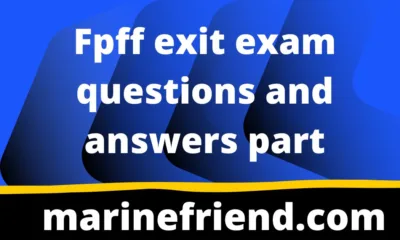MFA EXIT EXAM
REF MFA Exit Exam Question Answers Part-1
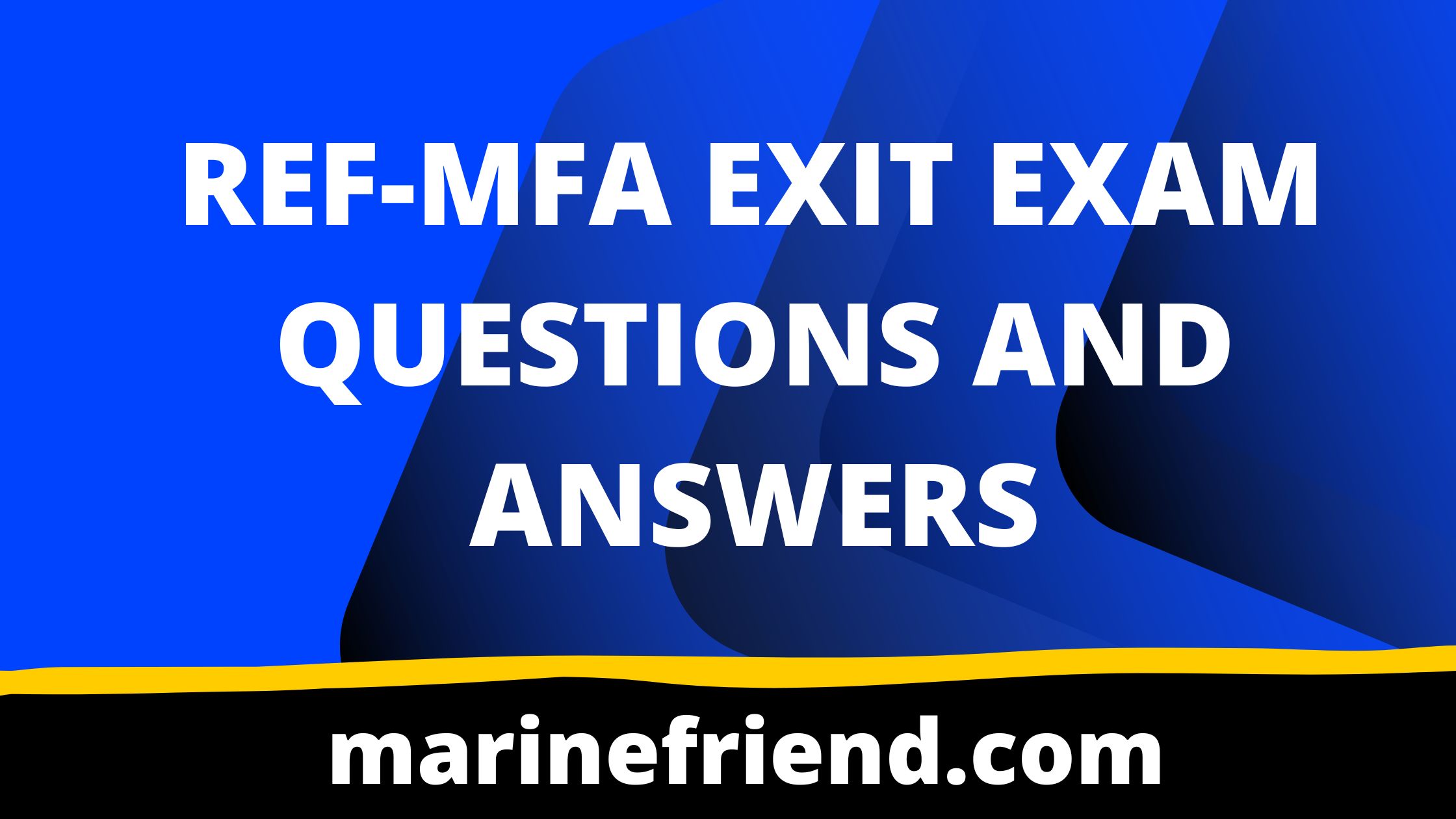
REF MFA Exit Exam Question Answers Part-1
Medical first aid (MFA) on a ship refers to the initial medical care provided to a sick or injured person onboard a ship or vessel at sea. The aim of first aid is to provide immediate care to stabilize the patient’s condition, prevent further injury, and promote recovery until more specialized medical care is available.
In addition to standard first aid procedures, medical first aid on a ship also involves taking into account the unique environment of being at sea, which can present additional challenges in terms of communication, transportation, and access to medical resources. As a result, medical first aid on a ship requires specialized training and equipment to effectively respond to medical emergencies at sea.(MFA EXIT EXAM)
1. Your check of the scene suggests that a victim has suffered an electrical shock. The first thing to do is:
A. Cover all burns with a dry loose dressing.
B. Ask a bystander to help you move the victim.
C. Place the victim on one side with the head down.
D. Make sure the power is turned off.
2. A victim of a car accident has just vomited and now appears to be coughing up blood. He is breathing very quickly and his pulse is weak and fast. What is most likely wrong?
A. He is having a seizure.
B. He has internal bleeding.
C. He is having a heart attack.
D. He is having a diabetic emergency.
3. You are caring for a victim with a burned hand. Put the hand in cool water if:
A.The burns are very deep
B. There are burns with open blisters.
C. The burns are minor with no open blisters.
D. You should put your hand in cool water for all of the above.
4. In general, a splint should be:
A. Loose, so that the victim can still move the injured limb.
B. Snug, but not so tight that it slows circulation.
C. Tied with cravats over the injured area.
D. None of the above.
5. A victim has lost a lot of blood through a deep cut in his leg. He is breathing fast and seems pail and restless. He is probably:
A. Having a stroke.
B. Having a heart attack.
C. In shock.
D. Choking.
6. You suspect that a person has been poisoned. She is conscious. Your first call should be to:
A. The Poison Control Center or your local emergency phone number.
B. The victim’s physician.
C. The hospital emergency department.
D. The local pharmacy.
7. Which would you do when caring for a seizure victim?
A. Remove nearby objects that might cause injury.
B. Place a small object, such as a rolled-up piece of cloth, between the victim’s teeth.
C. Try to hold the person still.
D. All of the above.
8. Splint an injury to a muscle, bone, or joint only when:
A. You have to move or transport the victim.
B. You can do so without hurting the victim.
C. You have splinting materials available.
D. Both a and b
9. For which of the following burn victims should you immediately call your local emergency phone number?
A. 40-year-old man has burned his hand with hot coffee.
B. 68-year-old woman has a blistered grease burn on her hands and arms.
C. A 26-year-old woman who has a sunburn on her shoulders.
D. All of the above.
10. A 15-year-old boy has just splashed a chemical on his face. After sending someone to call for an ambulance, you would.
A. Cover the burned area.
B. Have the victim stay calm until the ambulance arrives.
C. Flush the burned area with large amounts of water until the ambulance arrives.
D. Immediately drive the victim to the hospital.
What should you do if someone has been bitten by a poisonous snake?
a. Apply a tourniquet above the bite.
b. Try to suck the venom out of the wound.
c. Call 911 immediately.
d. Apply heat to the bite.
Answer: c. Call 911 immediately.
What is the correct way to perform CPR?
a. Give 5 rescue breaths followed by 15 chest compressions.
b. Give 30 chest compressions followed by 2 rescue breaths.
c. Give 10 rescue breaths followed by 20 chest compressions.
d. Give 20 chest compressions followed by 10 rescue breaths.
Answer: b. Give 30 chest compressions followed by 2 rescue breaths.
ALSO READ: Blacklisted rpsl companies 2023
Blacklisted rpsl companies 2023 PART-2
Questions are created from WEBSITES
REF MFA Exit Exam Question Answers Part 2.
REF MFA Exit Exam Question Answers Part 3
REF MFA Exit Exam Question Answers Part 4
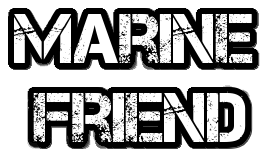
-

 SEAFARERS4 years ago
SEAFARERS4 years agoBsid dg shipping email id and contacts
-

 SEAFARERS4 years ago
SEAFARERS4 years agocommerce se merchant navy kar sakta hai kya?
-
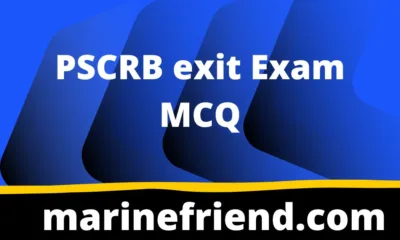
 PSCRB2 years ago
PSCRB2 years agoPSCRB exit Exam MCQ-1
-

 COLLEGES4 years ago
COLLEGES4 years agoGp rating college list approved by dg shipping in india
-
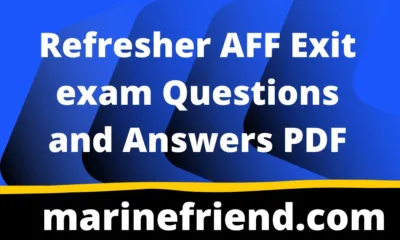
 RAFF2 years ago
RAFF2 years agoRefresher AFF Exit exam Questions and Answers PDF 1
-

 RPSL4 years ago
RPSL4 years agoBlacklisted RPSL companies 2021/2022/PART-2
-

 AFF2 years ago
AFF2 years agoAff exit exam questions and answers pdf-1
-

 RPSL4 years ago
RPSL4 years agodg shipping approved company






